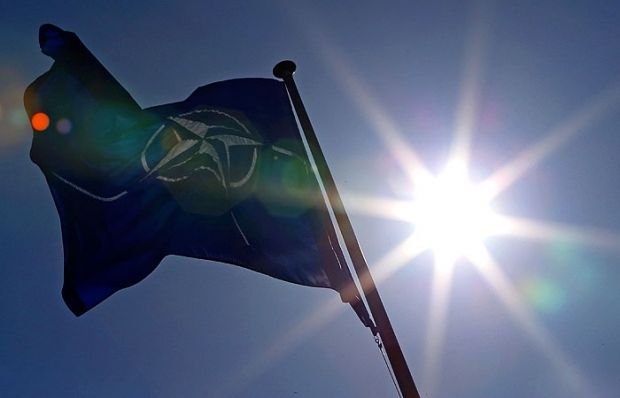
Collective insecurity
The Russian Parliament questions the legitimacy of recognizing the independence of the Baltic states, Latvia witnesses an unusually active Russian military near its borders, and most of the public in NATO member states don’t think it’s necessary to help their allies if they’re attacked.
June 17 is remembered in Latvia as the date when the Soviet occupation started in 1940. On the 75th anniversary of the annexation, the deputies of Russia’s State Duma sent a request to the Prosecutor General of the Russian Federation to assess whether the creation in 1991 of the State Council of the USSR was legitimate, as it adopted a number of decisions, “which inflicted enormous damage to the country’s sovereignty, security and defenses.” In particular, the letter reads that the decision to recognize the independence of the three Baltic republics, “cemented the deprivation the Soviet Union of a large part of its strategically important territory, the loss of sea ports and waters, causing the collapse of the country’s unified defense area, and the violation of economic relations with the Baltic republics.” And this, according to the Russian deputies, was not just criminal act, but a state crime of the highest degree, for which there is no statute of limitations, and which should be classified as “high treason.”
Curiously, on the same day, according to the National Armed Forces of Latvia, nine Russian military aircraft and several warships were spotted near Latvia’s borders. Overall, since the beginning of this year, there have been 61 sightings of Russian warplanes and warships near Latvian territorial waters, thus adding to fears of the Baltic countries of possible Russian aggression.
It seems at first that NATO member states have nothing to be afraid of, provided that Supreme Allied Commander General Philip Breedlove is believed when he says that Moscow's actions have been closely monitored. But it’s not all that simple. The fact is that the idea of military engagement against Russia, in the case of an attack on a NATO member state, does not enjoy broad support in Western Europe.
According to a recent poll conducted by Pew Research Center, 58% of Germans, 53% of the population in France and 51% in Italy did not consider it necessary to use military force in response to Russian aggression against a NATO ally. However, more “warlike” intentions were shown by U.S. citizens - 56%, and also by the respondents in Canada - 53%, the UK - 49%, Poland - 48%, and Spain - 48%. Nevertheless, sociologists have noted that “the majority of respondents in the NATO member states are not inclined to honor the commitment of assistance to their allies, including the use of armed forces under Article 5 of the North Atlantic Treaty.”
UNIAN asked experts what is behind these figures, will the policy of the NATO member states in case of military aggression correspond with public opinion, and whether it’s necessary for those of Russia’s neighbors that belong to NATO to fear the Kremlin’s actions.
Europe against the war
Pavel Baev, a senior non-resident fellow at Brookings Institution and IFRI (French Institute of International Relations) believes that the above-mentioned survey data should not add any more anxiety to Baltic countries, as the study’s result only reflects the fact: the Europeans do not want war and do not want to make war-related decisions. “But even such an attitude can’t undermine commitment to stop the Russian aggression by all means necessary,” he said.
The expert noted a major shift of popular opinion that occurred in Europe last year, which followed the tragedy with flight MH 17. In this regard, if we consider the hypothetical scenario of Russian troops crossing the borders of the Baltic states, such an event will “undoubtedly invoke a much harder-line reaction.”
According to Baev, the far from usual deployment of Russian “little green men” in Crimea was seen in NATO as a warning.
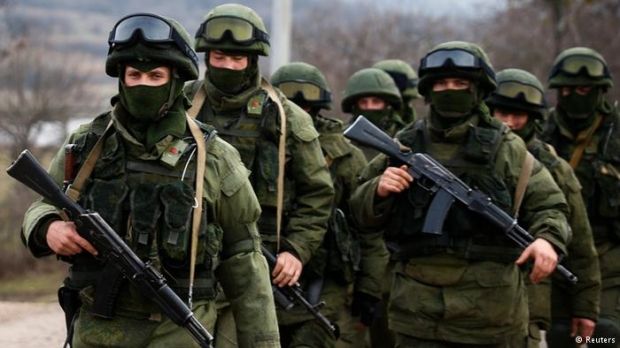
This warning regards the fact that military challenges may also be “not quite” military. “Estonia and, to a lesser extent, Latvia have been exposed to Russia’s influence and they have been working hard to find ways to respond properly to these challenges. In my opinion, Moscow will not seek to repeat a similar operation in the Baltic States only because it does not have the ability to be engaged in two hybrid wars simultaneously. And it is deeply stuck in the Donbas quagmire,” the expert believes.
In addition, Russia lacks qualitative military superiority in the Baltic region; therefore it is not going to go on a major offensive. In this regard, we should rather expect a series of provocations, aimed at making NATO anxious and keeping their forces in the region on full alert.
Oleksandr Sushko, scientific director of the Institute for Euro-Atlantic Cooperation shares the thought that that the idea of fighting outside a country’s territory is always unpopular. Sushko says, “It’s unpopular even if it falls under the country’s international obligations. This is especially true in Europe, which has paid a very high price for peace after centuries of wars; so pacifist sentiments in Europe are widespread, and that's a fact,” said the expert.
European pacifism exists in the face not only of Russia’s aggression, but any political-military action in general. And the results of the above study, although alarming, reveal nothing new. According to the experts, five or even ten years ago, the answers to the set questions would have been the same in Europe.
On the other hand, some believe that the concerns of the Baltic States over Russia’s possible aggression are not groundless. Thus, according to Oleksand Yara, a diplomat, and an expert at the Maidan of Foreign Affairs, the armed forces of Estonia and Latvia have 5,500 troops each, while Lithuania has nearly 11,700. Meanwhile, paratroopers from Pskov, notoriously known in Ukraine, have recently carried out military exercises involving some 6,000 military personnel. “The aim of the exercise was taking control over the enemy airfield, and then – the deployment of main forces. These exercises are aimed directly against Latvia and Estonia,” said the diplomat.
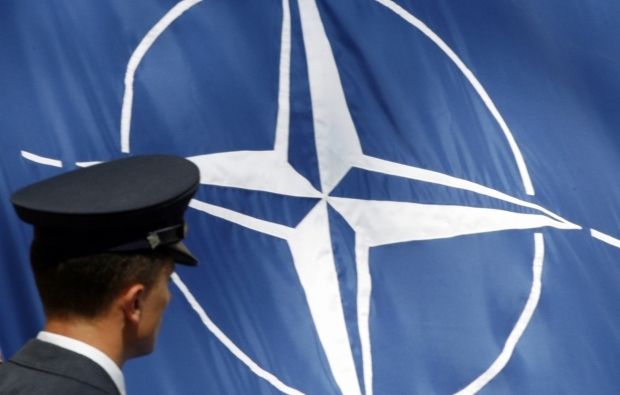
As a result, despite NATO reaffirming its members from the Baltic region of full commitment to the North Atlantic Treaty, and in particular, to the Article 5 defining an attack on one country as an attack on all members of the Alliance, it does make Latvian and Estonian residents feel less anxious.
“The Old Europe feels more secure, it does not perceive Russia as a threat and sees great benefits from trade, getting cheap resources and markets for their products,” said Yara.
Meanwhile, the United States makes more efforts to reassure support to their Baltic allies by deploying personnel in the Baltic countries and in Poland, pulling in military equipment, as well as organizing joint training exercises. “That is, they actually show their flag in these areas to slightly reduce nervousness, but in general, both the Baltic States and Poland sense threat,” said the expert.
NATO is not a panacea
However, according to Olexandr Sushko, no one can reliably predict what will guide the allies in the case of real danger, “as the situation is unpredictable, and the response may differ substantially depending on circumstances.” “If we talk about a ‘hybrid war’ when there is no fact of the declaration of war or some legitimate decision that would directly indicate the conduct of military operations, each such case will be assessed individually by every country. NATO member states will make their own decisions on how to fulfill their obligations under Article 5 of the Washington Treaty...” the expert believes.
In other words, the hypothetical need for military assistance of the NATO member states may call for the creation of rapid response forces. However, even in the case of a crisis in some of the alliance’s member states, the involvement of national military units of the allies, located further from the conflict zone is unlikely to be binding.
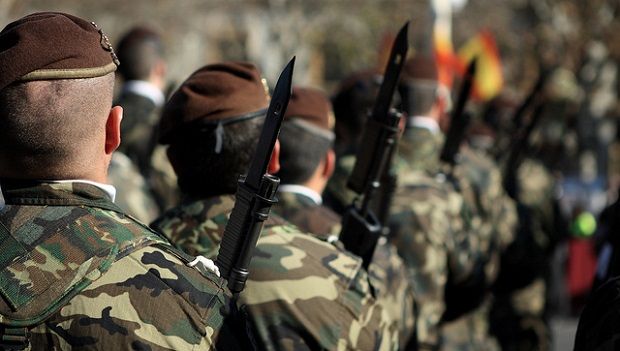
"It is not elaborated in the Article 5 of the Washington Treaty, how exactly the aggression should be carried out for the obligations of collective security to take effect. To date, the debate has been taking place in NATO to address the issue of what should be considered as aggression or an attack,” Oleksiy Miller, a co-director of programs on foreign policy and international security at the Razumkov Center told UNIAN.
For example, besides armed aggression, there could be a cyber-attack or some other kind of attack, in particular against the energy sector. “It does not have to be a classical armed offensive, when an avalanche of tanks or airplanes is launched to attack the territory. Also, there is no clear requirement that allied support should be in the form of aircraft, tanks and troops,” he explained.
As a result, some countries can provide military assistance to an ally, and the others can provide economic and military-technical support. “This issue is much more complex than it was during the Second World War, when the allies had to engage in combat operations,” said the expert.
In addition, according to Miller, the decision on the application of Article 5 “is not made via a referendum, or on the basis of an opinion poll, but at the level of NATO state leaders.”
The future of the alliance
In any case, experts agree that this popular opinion research on such issues cannot be ignored. Such surveys also indirectly confirm the lack of solidarity within the alliance. Moreover, it is not so much NATO as the EU, especially given the problems associated with the implementation of sanctions against Russia and distributing the burden of these sanctions among the EU member states.
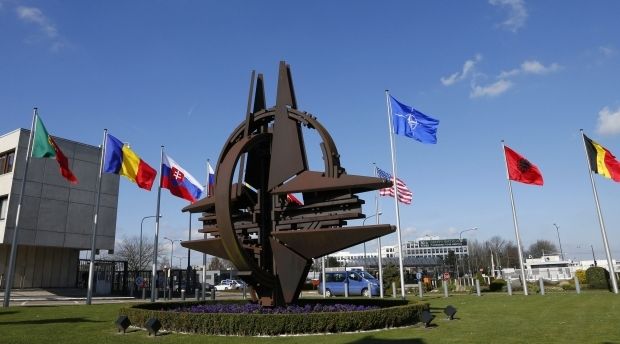
Oleksandr Melnyk believes that the result of the survey sends a clear signal to political leaders and the governments of these states. “Now it is necessary to conduct a more powerful information campaign and to explain to their citizens why collective security is important and necessary. That is, the ‘one for all and all for one’ principle can relate to Germany today, which feels no immediate military threat, but, in theory, it is possible that tomorrow Germany’s reluctance to risk its security or well-being for someone else’s sake may also strike back at it. These are the basic things that need to be voiced by politicians and by other means, through the media or through targeted information campaigns,” he said.
Anyway, the experts agree that today there is no alternative to NATO. “Moreover, in recent years became apparent some motives of the alliance’s creation and existence, which many had considered irrelevant,” said Olexandr Sushko.
Oleksiy Miller echoes this idea, “The issue of the very existence of the alliance, which used to be actively discussed after the end of the ‘Cold war,’ or even three-five years ago, when there was no obvious threat, is not on the agenda anymore... There is a threat and it will encourage changes within the alliance, but I find impossible for someone to raise the issue of whether the existence of NATO is relevant.”
According to him, there is no alternative to NATO that would ensure the security of both Europe and North America. And attempts to create some semblance of a defense alliance in the EU can be called successful only partly.
In turn, Orysia Lutsevich, an analyst with Chatham House in the UK, believes that NATO member states should not just worry about their security, but invest in it. “NATO is a system of collective security, the strength of which lies in the ability of each member of the alliance to have a strong army,” she says.
At the same time, the expert notes that, to date, only four NATO member states adhere to the requirements of spending 2% of GDP on their defenses – these are Estonia, the United Kingdom, the United States, and Greece.
Kostyantyn Honcharov

